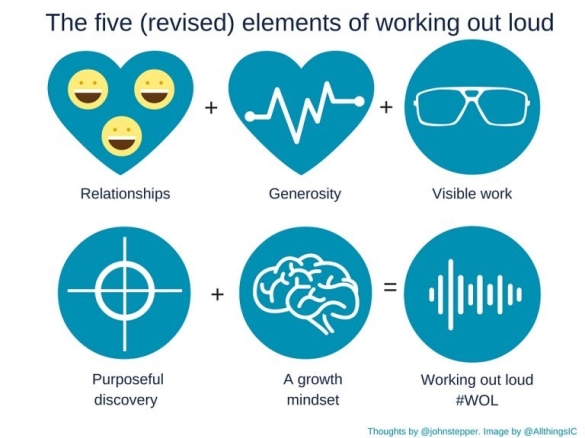
Choice paralysis by Lauren McDonald via CC license on Flickr
“The problem, simply put, is that we cannot choose everything simultaneously. So we live in danger of becoming paralyzed by indecision, terrified that every choice might be the wrong choice.”
― Elizabeth Gilbert, Committed: A Skeptic Makes Peace with Marriage
I love this photo and quote put together by Lauren McDonald on her Flickr page. The photo perfectly illustrates how hard our choices can be sometimes; should I pick the red or the orange one? They all look so good – how do I know which one to pick? Why can’t I have all of them?
This post was inspired by Meredith Farkas’s post called “Leaning into the messy world of work-life balance” – please do take some time to go and read it; it is a lovely profound post that discusses the issues better than I could, but I am giving it a go anyway! 😀
Her post really resonated with me; particularly this paragraph which details the insatiable urge to say “yes” to every opportunity:
I’m not sure where this drive comes from. Part of it might be insecurity. I never quite feel like I’m doing enough or doing well enough. It doesn’t seem to matter how much I achieve; I never lose that feeling. How can I miss out on this opportunity? What might be the consequences of saying no? If I don’t do or see ___ now, I may never get the chance again. This constant craziness of always needing to do the most and get the most out of everything is exhausting. And what’s most frustrating is that all of this doing never seems to lead me to any real sense of accomplishment. Already, I’ve achieved more than I ever thought possible in my professional and personal life, but the bar just gets higher and higher.
So many posts for and by new professionals all encourage new professionals to say ‘yes’ to opportunities – they advise that the extracurricular activities look good on your CV, you prove that you are up for the challenge, you demonstrate your commitment to the profession, and these opportunities open new doors for your career. Posts like these:
All of these things are true – and I don’t think I have a problem saying ‘yes’ to these opportunities!
The problem I have is saying no.
Much like Farkas, I focused on looking at what I would miss out on by saying no. There were negative thoughts – I might never get this opportunity again; people might think less of me – and positive thoughts – this opportunity would be really good for my professional development; this would look great on my CV; this relates to X and Y which I am already doing. The problem is I was only looking at one side of the equation.
She goes on to say:
I used to say yes to way too many things, because I was always focused on what I’d lose by not doing it. Now, I’m focusing on what I give up by saying yes. By saying yes, there are other things I can’t do, like spending time with family and friends or engaging in hobbies, exercise, and sleep. I’ve spent way too much time at home sitting on my computer working when I could be having fun with my family or going for a walk in our recently beautiful weather. I don’t even remember where last summer went. So I’ve started to say “no” a lot more. And I’ve been surprised by how not-at-all guilty I feel about it. Sure, I’ve given up some cool opportunities, but I love what saying no means I’m saying yes to.
I *love* this perspective. Instead of looking at the negative side of saying ‘no’ to something, I could think about what I am saying ‘yes’ to.
I found some good resources on saying no:
I particularly like her explanation of William Ury’s principle for a positive no which is saying “Yes! No. Yes?”
You begin a no with saying yes to a positive choice: like spending more time with your family; having a bit of down time. You then say no to the request: “No, sorry I’m afraid I don’t have the time to be on that committee.” You then follow up with a proposition or compromise: “I’m sorry that I don’t have the time to commit to being a member on this committee, but I will be able to come to x number of meetings for consultation on this particular issue.” This way of constructing a no still leaves the door open with room for future collaboration or opportunities. It is not slamming a door, but rather sticking a “in a meeting” sign on the door.
Cruz notes the criteria we should consider when making a choice.
- Does it support the vision and mission of my employer?
- Will it take much time?
- Will it stress me out?
- Will it help me develop professionally?
She also notes the dilemma of the new professional very well:
At the beginning of a career or new job, it can be tempting to take on anything and everything. You’re excited and wanting to prove yourself. Lately, I’ve been hearing several of these coworkers say, “I’m learning to say no.” As we become more aware of what our responsibilities are and how quickly we are able to accomplish tasks, determining what we can fit in becomes easier.
So I think it is important to strike a balance between an enthusiastic “yes!” and a positive “no.” I think this new framework could help make these decisions easier and enable me to be intentional with what I choose to spend my time on. My mother always says: “It is better to just pick one thing and do it well than do a whole lot of things poorly.”
What are your criteria for these decisions?
How do you decide to say yes or no?
Whatever our choices are, they determine where we will go and what our next choices could be. They are part of the fabric of our lives.

Choices by WordShore via CC license on Flickr






